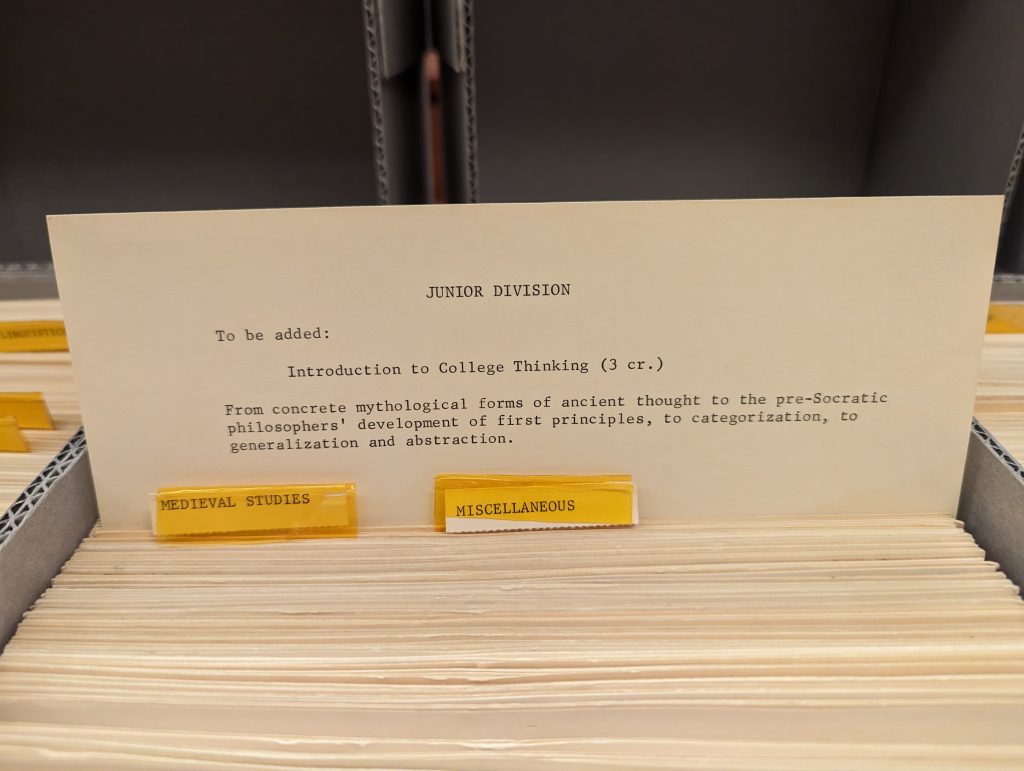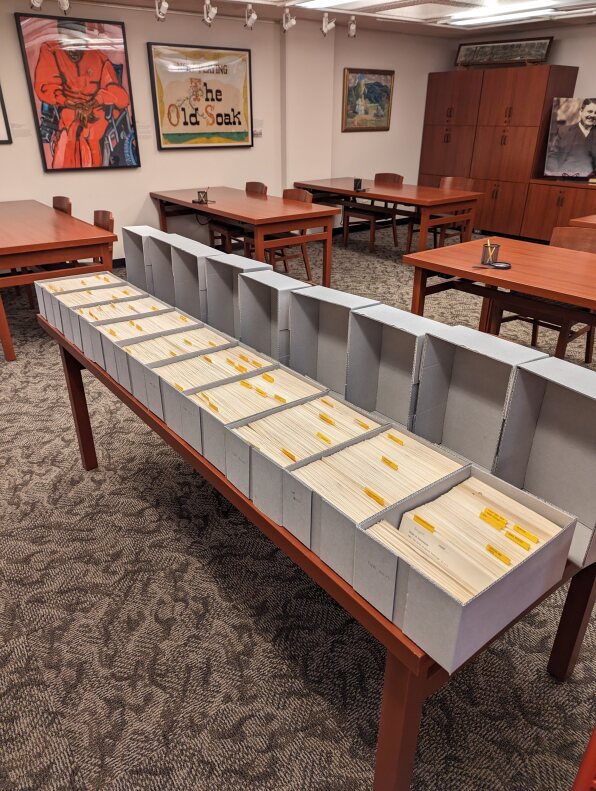A newly processed collection, the College of Arts and Sciences (COAS) Curriculum Committee records, shares all course adjustments for the college from 1937 to 1996, and it’s a wonderful resource for anyone researching the history of their academic department, exploring major curriculum and instruction changes at a major higher education institution, or simply wanting to look at what interesting courses were taught at Indiana University in the 80s.

My background in education had me very intrigued to look through the COAS Curriculum Committee records, and this collection did not disappoint. I had the opportunity to work through 18.5 cubic feet of Curriculum Committee meeting minutes and exhibits where faculty members proposed new courses for their department and was able to track the decision made by the committee. As I refiled the papers into new folders, I noticed the influence of political movements in history such as the creation of a course called “Contemporary Communist Societies” in 1958 and watched programs such as the undergraduate Computer Science major form.
Other notable courses that I found interesting when looking through the collection include: “Contemporary Black Film” offered in 1981, “Intro to Men’s Housing” and “History of Korean Literature” in 1965, “Mosses and Liverworts” which was dropped in 1977, and “Etiology of Norm-Violating Behaviors” in 1976.

The College of Arts and Sciences has such a major role in the academic community of Indiana University, and I’m hoping that many people will be able to utilize this collection for research or out of sheer curiosity. One unique aspect of this collection is it’s catalog of reference cards. Each change that happened to a course, whether it was proposed and rejected, changed credit bearings, had a name change, or a description change; it was all documented in a card catalog that was used by the Curriculum Committee. This card index is a great way for a researcher to introduce themselves to the collection. I recommend that researchers browse through the card catalog for their specific major or department and flip through the classes, note what changes were documented and their date. Then, researchers can go through the various different parts of the collection such as meeting minutes, agendas, and recommendations to find a more detailed account of that course change to see what professors made the request and why it was either accepted, changed, or rejected by the Curriculum Committee.
In some cases, administrative record collections don’t receive a lot of attention or interest because they’re full of administrative jargon, maybe not as interesting as personal paper collections, or are confusing for researchers to navigate. The IU COAS Curriculum Committee records challenge those perceptions of administrative collections because of how the committee represented their records in the card collection making it accessible and approachable.
I’m very excited that the Indiana University College of Arts and Sciences Curriculum Committee records are open and available for anyone to use; contact the Indiana University Archives for a reading room appointment to view this collection today!
Leave a Reply